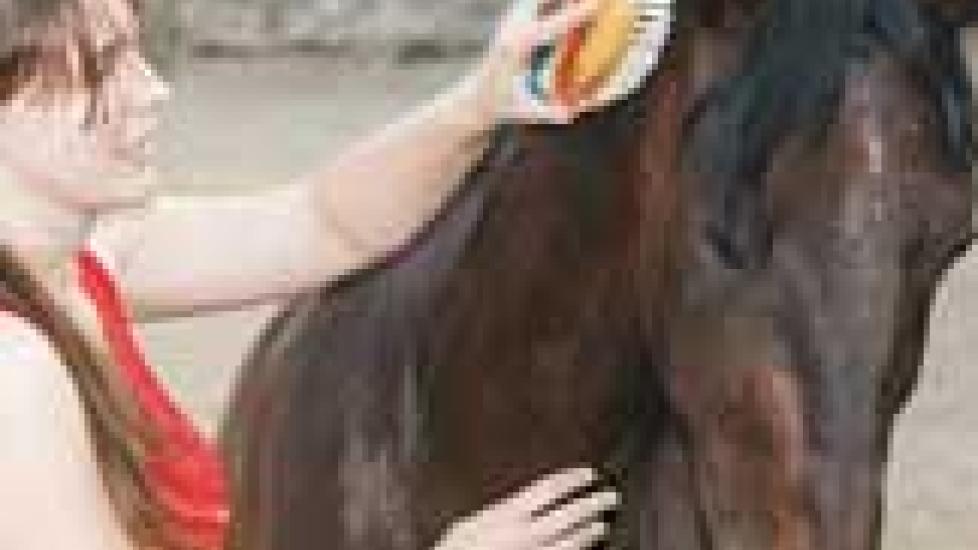The Benefits of Grooming Your Horse
For many people, the most obvious benefit of having a horse is the whole riding part. And I totally agree. True, some folks have horses as "yard ornaments," but on the whole, we have horses so we can hop on for a jaunt through the woods, or down the road, or over some jumps in the ring.
However, horses are much like cars in certain aspects. Like a car, if you don’t perform regular maintenance, the performance suffers. Also like a car, sometimes it’s easy to forget about the maintenance, or to grow complacent after years of good performance with little effort.
Whether you ride them or not, horses should receive daily care in the form of grooming. Here’s why:
1. Grooming gets your hands on your horse.
A good daily groom doesn’t have to take an hour. If you do it daily, your average time expenditure should actually be minimal. But during this daily routine you have an opportunity to get your hands on every inch of your horse, and what better way to quickly assess your horse’s health?
This is in effect what I do during a physical exam. Touching the animal tells you so much more than just looking at it over the fence. Is the horse sensitive in a particular area? Are there any weird lumps or bumps? Any rashes, scratches, or swellings? A good grooming session will let you pick up on these things before they become a major issue.
2. Grooming acts as preventive medicine.
A good grooming session increases blood flow to the skin’s surface, massages large muscle groups, and daily hoof picking keeps the feet clean and helps prevent common hoof issues such as thrush, a bacterial disease of the sole. Horses out in the wild don’t have this luxury, but they have each other, and mutual grooming takes the place of brushes and combs.
When you remove a horse from its natural environment and stick it alone in a stall, you need to take on the responsibilities of herd mates for the health of the individual.
3. Grooming increases the human-animal bond.
True, there are some horses out there that don’t like to be groomed. But the majority does tend to enjoy it and this is a great opportunity to bond with your riding companion. Engaging your horse in an activity where you are not requiring him to actually perform any work is a release from the demands we push on our riding mounts. This is your chance to give back and let your horse relax.
Quiet time with just you, your horse, and a brush can communicate feelings of communal pleasantries that benefit both horse and rider. For those just starting a relationship with a new mount, this is a wonderful way to build a bond, and for those beginning training with a young horse, grooming can re-assure an anxious green mount.
4. Grooming can be more than a brush in hand.
Sometimes, if you don’t have time to ride, a grooming session can substitute. Practicing some ground exercises such as lateral neck flexions or picking up hooves and doing some leg extensions are great equine yoga moves to help with flexibility and balance. Some people take the time to practice ground manners or teach their horses tricks. It’s amazing what you can do with your horse if you only have twenty minutes in the evening after work.
5. Grooming is excellent exercise — for you.
So, this is a purely selfish reason for encouraging people to take the time to groom, but how many of you have worked up a sweat just brushing your horse? Working that body brush over the top line will definitely work your shoulders and triceps if you are doing it right! Who needs a gym membership when you have horses, right?
I currently do not have a horse to call my own. I remember that some of my favorite times with my beloved Connemara pony, Wimpy, were in the quiet evenings, grooming him until his white coat gleamed (followed by a nice brown/green manure stain the next morning, naturally). All this talk about quality time with horses makes me miss that (the grooming, not the manure stains). Anyone have a horse they need groomed?

Dr. Anna O’Brien
Image: Roger costa morera / via Shutterstock
